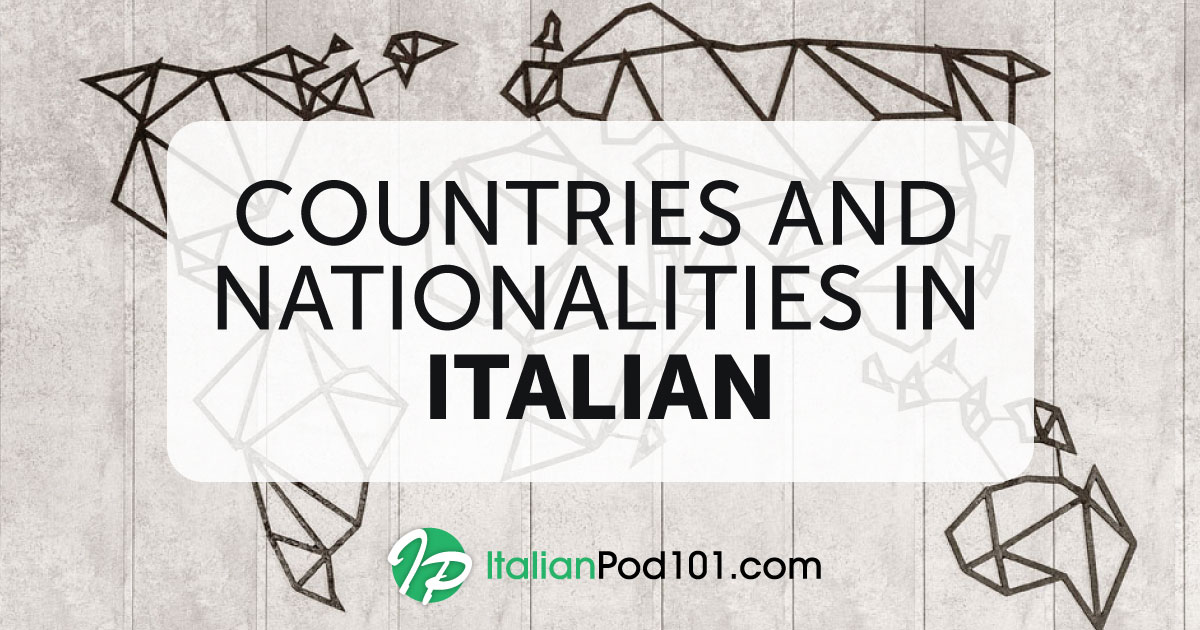Why is it important to study the most useful Italian compliments? Nothing makes people feel more important, appreciated, and good about themselves than compliments. By complimenting a girl, a friend, or a chef for their very good food, you set out to a good start in any relationship. Not to mention that the occasional compliment is an indispensable part of polite conversations.
First of all, let’s remember that the two most basic Italian compliments are bello/a (“beautiful,” “nice” ) and bravo/a (“good,” “able” ). We’ll see how they can be used in different ways, and how you can fare bella figura, or “make a good impression,” using these common Italian compliments and praise words.
Table of Contents
- Ciao bella! Complimenting Someone’s Look
- Complimenti! Complimenting Someone’s Work
- Bravo! Complimenting Someone’s Skills
- Che buono! Complimenting Food
- Come stai bene! Generic Compliments
- Grazie! What to Expect After Giving Compliments
- Che bel sorriso! How to Flirt in Italian
- Sembri più giovane! Compliments on Someone’s Aging
- Congratulazioni! You’ve Gotten to the End…
1. Ciao bella! Complimenting Someone’s Look
Italians can be very particular about looks, and they’ll definitely notice a person’s hairstyle, tan, and clothing choices and comment about it. This can be a genuine compliment or just a way to—subtly—point out if something is off… But don’t worry. What matters is being able to graciously accept and respond to the compliments.
Che bel gattino! (“What a cute little cat!” )
By far, the most common compliment in Italian is bello (“beautiful,” “nice” ), which can be used to both compliment a person’s look and to praise an object’s or animal’s appearance.
- Sei una bella ragazza. (“You are a beautiful girl.” )
- Sei un bel ragazzo. (“You are a handsome boy.” )
- Hai una bella macchina! (“She has a nice car.” )
- Puffi è un bel gattino! (“Puffi is a cute little cat.” )
Notice how the adjective bello has the particularity that its ending changes depending on how the next word starts, just like the definite article, as follows:
La ragazza >> bella ragazza
Il ragazzo >> bel ragazzo
Compliment phrases in Italian can take different forms:
- Come sei carino/a! (“How cute you are!” )
- Che begli occhi! (“What beautiful eyes!” )
- Quanto sei elegante! (“How elegant you are!” )
Notice how you can start a compliment in Italian with one of these conjunctions:
- Come (“How” )
- Che (“What,” but literally “that” )
- Quanto (“How,” but literally “how much” )
Now, receiving compliments is all too nice, but there also exists a whole different aspect of complimenting someone’s look. This is the—rather annoying—compliments to passing women in the street. This is, unfortunately, a practice quite common in Italy, especially in the past. Nowadays, things are slowly changing and Italian men have started to realize that random compliments from a stranger are not welcome. So, if you’re a woman visiting Italy, be prepared that you might receive some unwanted compliments on the street, and try to avoid the typical Italian cascamorto (“skirt-chaser” ).
2. Complimenti! Complimenting Someone’s Work
Cooperation and partnership in the workplace are very important. So make sure you know how to compliment a job well done, a good performance, or a brilliant idea.
Ottimo lavoro! (“Great work!” )
- Hai fatto un bel lavoro. (“You did a good job.” )
- Che progetto ben fatto. (“What a well-made project.” )
- Bellissima presentazione. (“Very good presentation.” )
- Ottima idea. (“Great idea.” )
- Complimenti. (“Congratulations.” )
- Congratulazioni. (“Congratulations.” )
We’ve seen how the Italian word bello is used to refer to aesthetic beauty, but in this case, it can also refer to something that is good quality-wise.
As you can see, there are two different Italian compliment words to express “Congratulations,” and they’re used in different contexts:
-
– Complimenti is used to praise somebody who behaved well, passed an examination, or achieved some other accomplishment: Complimenti per la presentazione, è stata veramente interessante. (“Congratulations on the presentation; it was really interesting.” )
– Congratulazioni is used for promotions, marriages, or having a baby: Ho saputo che hai avuto una promozione. Congratulazioni! (“I heard you got a promotion. Congratulations!” )
3. Bravo! Complimenting Someone’s Skills
Bravooooooo!
Have you ever been to a concert or a play? Have you ever been to Teatro alla Scala in Milan? At the end of a performance, if the show was good, everybody stands up shouting “Bravo!” That’s a typical example of how to praise somebody for something good or well done. Bravo is a word that’s used in theaters and concert halls all over the world, but only in its masculine form, even if you’re complimenting a woman. In Italian, however, like every other adjective, bravo needs to agree in gender and number with the person (or people) you’re complimenting.
- Brava, Maria, scrivi proprio bene! (“You are good, Maria, you write really well!” )
- Bravo Marcello, corri molto veloce! (“You are good, Marcella, you run really fast!” )
- Bravi bambini, siete stati molto buoni oggi! (“Good kids, you have been very good today!” )
Bravo can also be used to praise a specific activity:
Che bravo/a ____!
- Che bravo fotografo! (“What a good photographer!” )
- Che brava attrice! (“What a good actress!” )
You can also use bello as a way to compliment the product of an activity:
Che bello ____!
- Che belle foto! (“What nice photos!” )
- Che bella interpretazione! (“What a beautiful interpretation!” )
When you compliment someone in Italian, it doesn’t hurt to exaggerate a little. Here’s a list of adjectives that will increase the power of your praises:
- Fantastico (“Fantastic” )
- Meraviglioso (“Wonderful” )
- Stupendo (“Superb” )
- Eccezionale (“Awesome” )
- Formidabile (“Fantastic” )
- Splendido (“Beautiful” )
- Incredibile (“Unbelievable” )
Another way of complimenting someone for doing something well—such as speaking Italian, cooking, or performing a sport—is to use the following construction:
Come ____ bene!
- Come cucini bene! (“How well you cook!” / “What a good cook!” )
- Come parli bene l’italiano! (“How well you speak Italian!” )
- Come giochi bene a calcio! (“How well you play soccer!” )
4. Che buono! Complimenting Food
Italians love food. They love to make it. They love to eat it. They especially love to talk about it… So, it’s just natural that they expect to be praised when they’re cooking and to praise (or criticize) when they’re eating. Let’s look at some Italian compliments for food!
Mmm.. Faccio il bis! (“Mmm… I go back for seconds!” )
Here’s the survival list of food compliments in Italian:
Che buono/a! is the first and most important compliment you can say about any dish. It means “good” in a general sense, but when it comes to food, it means “tasty” or “delicious.” Feel free to use or include any of the exaggerated adjectives that were listed before!
- Che buono! Posso assaggiare? (“So good! Can I taste it?” )
- Il pesto genovese è delizioso. (“Genoa pesto is delicious.” )
- La lasagna della nonna è buonissima! (“Grandma’s lasagna is very good!” )
- La pizza fatta in casa è eccezionale! (“The homemade pizza is awesome!” )
- Questo gelato è fantastico! (“This ice cream is fantastic!” )
However, the best compliment you can make to an Italian cook is to eat and come back for more. This is better than any praise:
- È buonissimo! Posso averne ancora? (“It’s good! Can I have some more?” )
- Mi piace un sacco! Faccio il bis. (“I really like it! I’ll go back for seconds.” )
An even better compliment is to ask about the ingredients and to ask for the recipe:
- È delizioso. Mi dai la ricetta? (“It’s delicious. Can you give me the recipe?” )
- Che piatto fantastico! Come lo prepari? (“What a fantastic dish! How do you prepare it?” )
And finally, whether you’re at a restaurant or at somebody’s house, the classic compliment for food is the good old: Complimenti al cuoco/alla cuoca! (“My compliments to the chef!” )
5. Come stai bene! Generic Compliments
Come stai bene! is a generic compliment that you can use for many different occasions. This is because it conveys a general sense that the person you’re complimenting looks good, feels good, or has something good about him/her. It’s often followed by a question to get more details about the specific compliment:
Looks:
- Come stai bene, sei andata dal parrucchiere? (“You look nice, did you go to the hairdresser?” )
- Come stai bene, sei stato al mare? (“You look nice, did you go to the beach?” )
Fitness:
- Come stai bene, stai andando in palestra? (“You look good, are you exercising?” )
- Come stai bene, stai facendo una dieta? (“You look nice, are you on a diet?” )
Clothing:
- Come stai bene in rosso. (“The color red suits you.” )
- Come stai bene, è un vestito nuovo? (“You look nice, is it a new dress?” )
Il rosso ti sta bene. (“Red suits you.” )
When talking about clothes, most Italians are happy to be praised regarding their style. The way to do that is to make a compliment that not only praises the piece of clothing or the accessories, but also the way the person is wearing it, and how beautiful he or she looks in it. Here’s how you do that:
Come ti sta bene ____ !
- Come ti sta bene questo cappotto! (“How good you look in this coat!” )
- Come ti stanno bene questi occhiali! (“How good you look with these glasses!” )
And everybody loves a casual mention of elegance and style: Che eleganza! Che stile! (“What elegance! What style!” )
6. Grazie! What to Expect After Giving Compliments
In Italy, we generally like to receive compliments and to be praised. Who wouldn’t? But even so, people often respond to compliments by shying away, pretending that they don’t really deserve it, or that it’s not a big deal. But it is! Trust me…
So, while the general response to compliments is thankfulness:
- Grazie. (“Thank you.” / “Thanks.” )
- Grazie mille. (“Many thanks,” but literally “a thousand thanks” )
- Che gentile! (“How kind!” )
- Che carino! (“How nice!” )
…others prefer a somewhat shy response:
- Ma figurati… (“Do not even mention it…” )
- Mi fai arrossire… (“You make me blush…” )
- Mi metti in imbarazzo… (“You embarrass me …” )
7. Che bel sorriso! How to Flirt in Italian
Of course, we couldn’t do without a chapter dedicated to romantic Italian phrases and flirting in Italian. After all, Italy is one of the most romantic places on earth, and the native country of Rodolfo Valentino, the father (or grandfather) of all Latin lovers.
Che bel sorriso…? (“Beautiful smile…?” )
Interesting fact: The word “flirting” (flirtare) has recently entered the Italian dictionary (it’s pronounced flertare). Of course, the compliments you use when flirting are different depending on if they’re for a man or for a woman. Also, while flirtatious compliments can get very creative and even funny, in most cases, you just need to praise the object of your desires in the most common way. The only important thing is to be sincere.
Italian compliments for a woman:
- Come sei carina! (“How cute you are!” )
- Come sei dolce! (“How sweet you are!” )
- Sei una bella ragazza/donna. (“You are a beautiful girl/woman!” )
- Che begli occhi! (“Nice eyes!” )
- Che bel sorriso! (“Beautiful smile!” )
- Sei molto simpatica! (“You are very nice!” )
Italian compliments for a man:
- Sei un tipo interessante. (“You’re an interesting guy.” )
- Come sei divertente! (“You are funny!” / “You make me laugh!” )
- Che belle mani! (“You have beautiful hands!” )
- Che muscoli! (“What muscles!” )
- Che bel sorriso! (“Beautiful smile!” )
- Sei molto simpatica! (“You are very nice!” )
8. Sembri più giovane! Compliments on Someone’s Aging
Are you about to go and meet a friend’s sweet grandma? In that case, when talking to the nonna (or other elderly member of the family), remember that talking about age isn’t exactly a taboo. It’s just a topic to be treated with delicate care. And there’s always a subtle way to make compliments on somebody’s age and to avoid embarrassing missteps.
75? Li porti benissimo! (“You don’t look at all 75!” )
Whenever the topic of age comes up in conversation, you’re “supposed” to praise the person for not showing their age. There are many ways to do that, and the person you’re complimenting will be grateful to hear any of them:
- Sembri più giovane. (“You look younger.” )
- Li porti bene/benissimo. (Lit. “You wear them very well,” means “You don’t look your age”. )
- Ti davo dieci anni di meno! (“I would give you ten years less.” )
- Non li dimostri per niente! (“You don’t show them at all!” )
9. Congratulazioni! You’ve Gotten to the End…
You deserve to be praised for all the hard work you’re putting into learning Italian. Now you can take advantage of all the great resources you can find at ItalianPod101. Grammar lessons, vocabulary lists, and language practice. Everything you need to keep improving your Italian skills!
Practice is always the best strategy to improve your Italian grammar, vocabulary, and communication skills. So make sure you visit ItalianPod101. Here, you’ll find a great number of free resources, podcasts, lessons, and even mobile apps, and a FREE PDF with practical and efficient lessons. Keep up your good work on your Italian learning!
In the meantime, if there’s anything in this lesson you didn’t quite understand, feel free to leave us a comment and we’ll do our best to help you out! What’s your favorite Italian compliment?




















